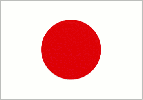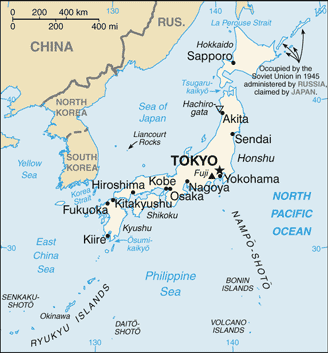IC08 Preview - Japan's running men to continue rise
- Wednesday, August 20 2008 @ 11:15 am ACST
- Contributed by: Troy Thompson
- Views: 5,980


The Japanese have a solid university based footy system and have used this to bring new players to the game as well as maintain a good number for longer careers in the sport. They also have some solid Australian expats in the country to learn from and play against.
They have shown improvement from their 2002 visit when they went without a win, to two wins and solid showings in 2005. Following the 2005 cup Michito and Kase had their well publicised time in Australia with Essendon and then seperately with Wodonga Raiders and St Bernards, and have shown the potential for Japanese players to play the game in it's home country.
Coach Richard Laidler's goals for his charges are for them to "Win as many games as possible. Be competitive and never give in." And for those that saw them in 2005 that would not surprise anyone. And keeping with the trend of the current AFL style of "play on as often as possible" Laidler says his team's style will be "Fast and running football. Kick to a target or open space, play on."
The Country and Australian Football
It may surprise many that Australian football has a long history in Japan relative to many of the other countries in this year's International Cup. While football was reportedly introduced to the country in 1910, not much is known about what followed up until the late 80's. Since then the country has had a solid footy presence with many appearances in Australia for Arafura Games, various football tours as well as attending both previous International Cups, and also some Asian Championships around the region.
Strengths and Weaknesses
The Japanese players are very quick and have excellent skills at ground level. They deliver well to leads which allows them to overcome a lack of height, and they always seem to have quick rovers to clean up and score if the ball hits the deck. Some of the smaller players do not appear to have a great length to some of their kicking which could allow astute teams to be rewarded by playing in front. Most of their players are pretty light which although allows them to travel at speed, but does make them a little easy to knock off the ball at times, just as long as their opponents don't underestimate their tenacity.
Players to watch
While the squad has a big youth focus (23 players 22 years or younger) the Japanese will be hoping they can get the mix of youth and experience right on the field. A big part of that will be Japanese football's celebrities Michito Sakaki and Tsuyoshi Kase. These two will look to build on their reputations gained in the 2005 IC and show just what they have added to their games since then.
Coach Richard Laidler says we should also look out for 22 year old Hiroyuki Tohyama and 20 year old Shoto Yokoyama both from the Tokyo Leopards, Jun Sekiguchi who has been playing with West Preston Lakeside and 22 year old vice captain Hiroaki Seino. Team Manager Hideki Miyasaka suggests that we should watch out for 18 year old scholarship player Hayata Ono "He just started footy this spring at Senshu Uni Powers. (He is a former baseball player) He will be spending short time at Box Hill North in the VAFA until end of September learning footy and Australian culture".
Form guide
Their 2007 tour saw them defeat Box Hill North (who they play again on August 24th from 1PM at Elgar Park, Box Hill) and go down narrowly to St Bernards, and also lose to Xavier College and Melbourne Vietnam teams. They also defeated two Northern Territory teams at last year's Arafura Games. All of which doesn't really give us much of a form line but does tell us that most of the players have experienced football in Australia and that their preparation for the IC is based on a long term plan.
With significant improvement from 2002 to 2005 quite evident, we believe there should be more improvement on the cards. Just how much though is the question, their domestic numbers have grown and junior programs are up and running, but the same is happening in other countries. They have a handful of players who are playing the current season in Australia but so do other teams. The nature of sport and their university system means the do lose a lot of players over time which might be a limiting factor in their development.
Bottom line
The Japanese team will be tenacious, fast and skilfull. How they measure up size and strengthwise may be the key particularly in the key pool match against Samoa. We know the Samurai will have improved again from 2005 but will it be enough to get a higher finish?



 RSS news
RSS news Twitter
Twitter Facebook
Facebook